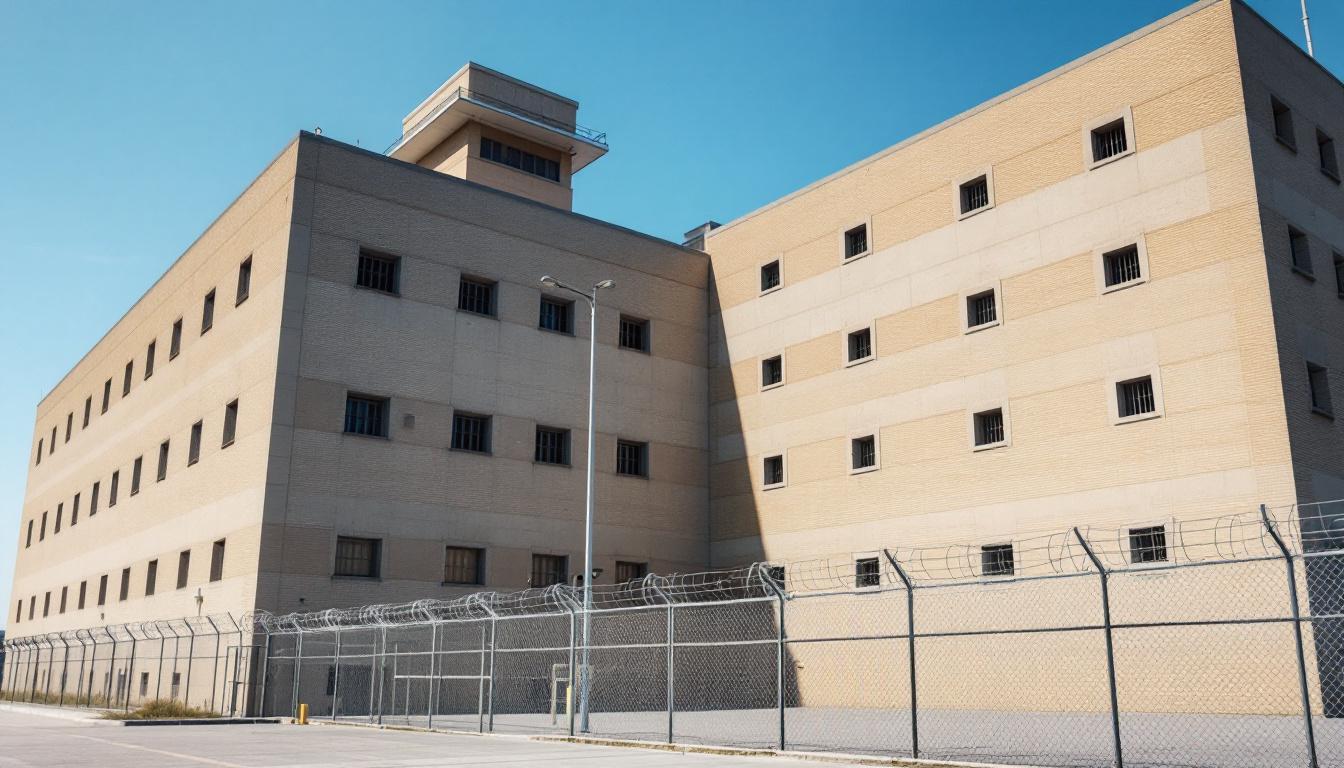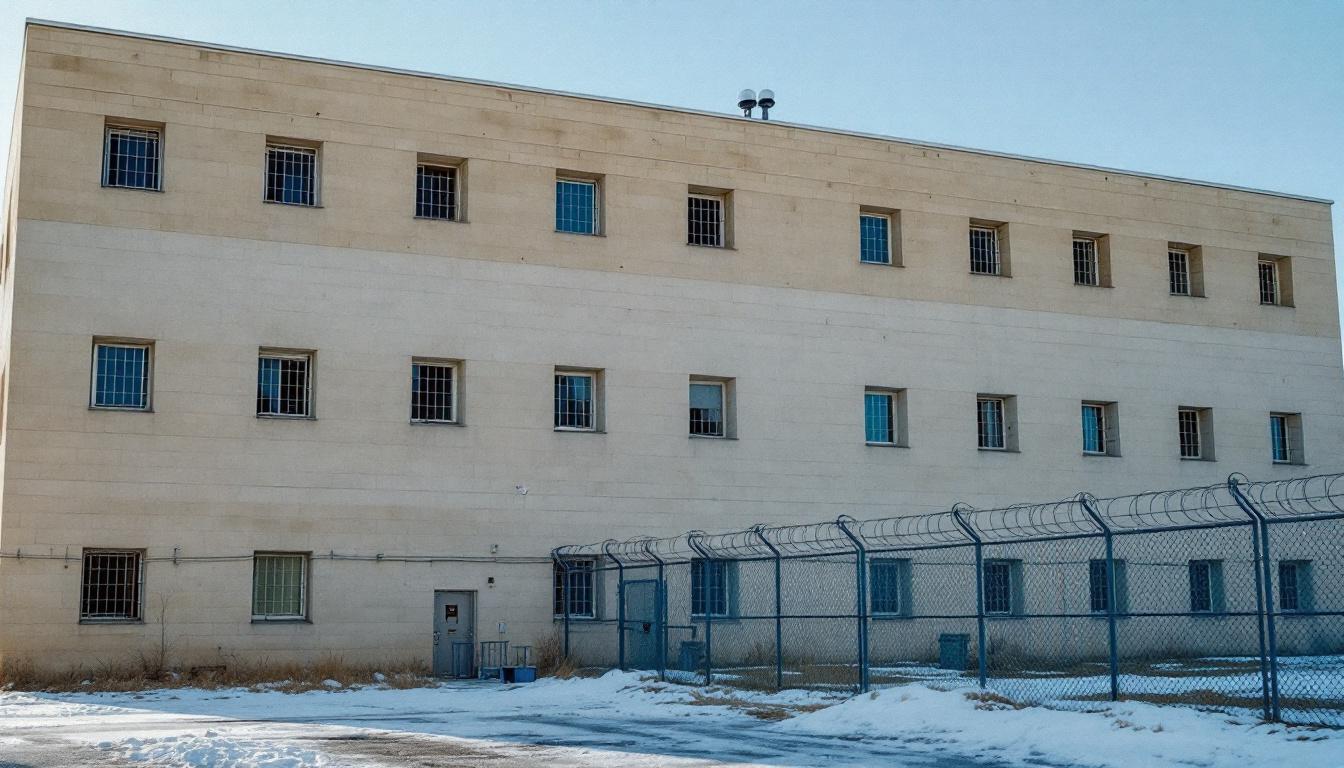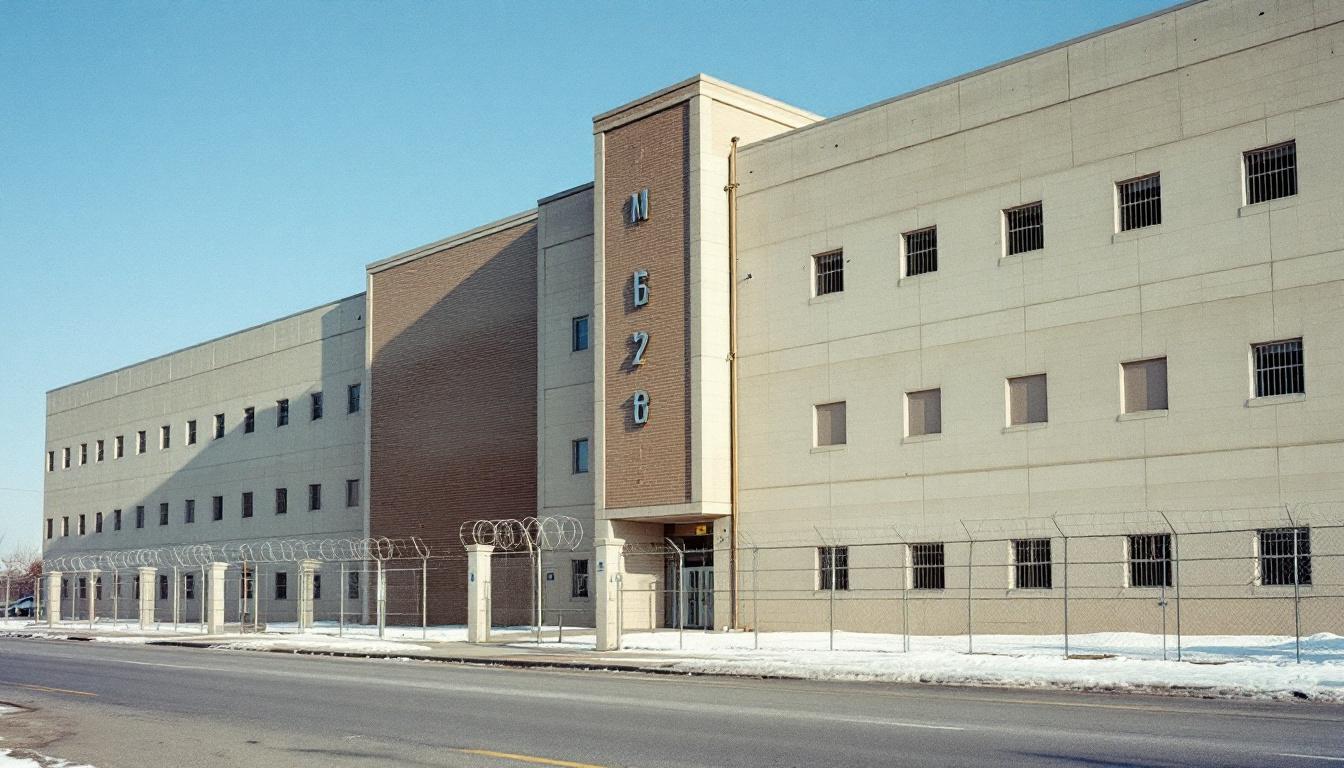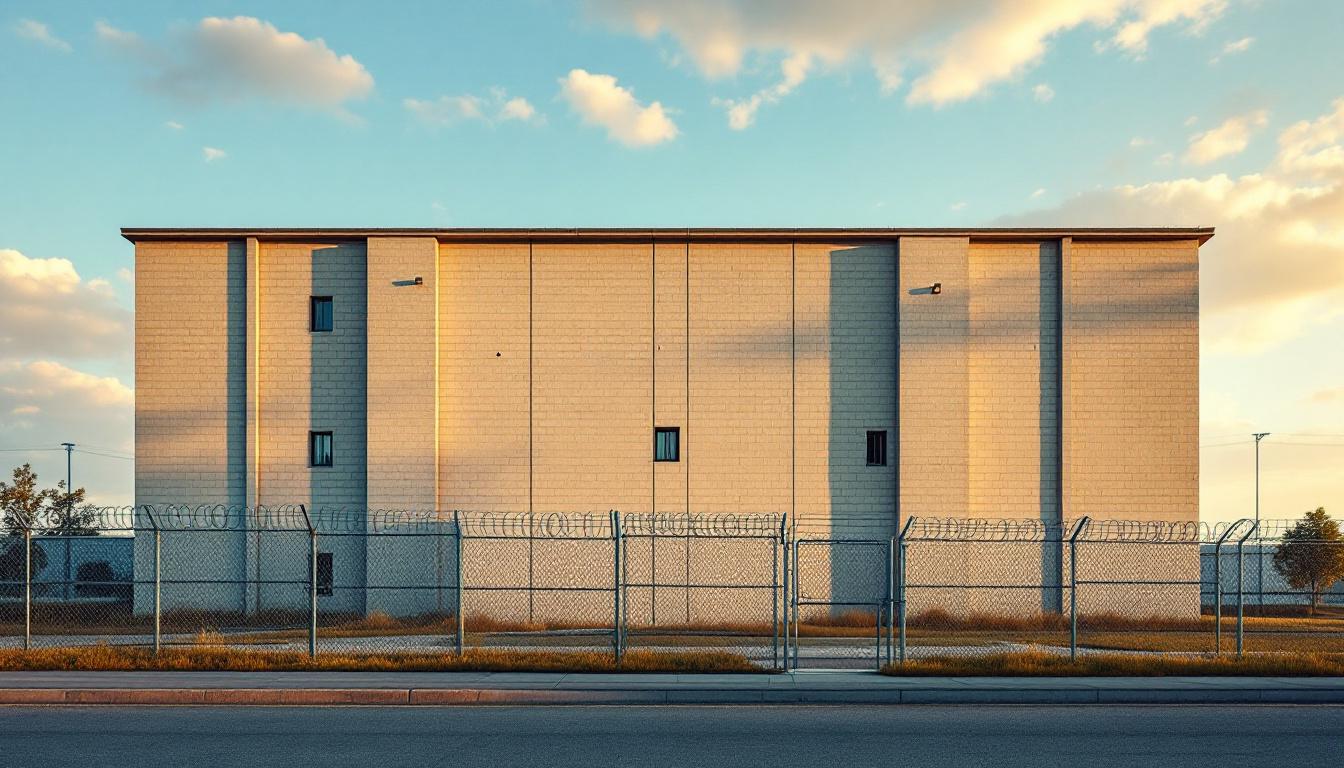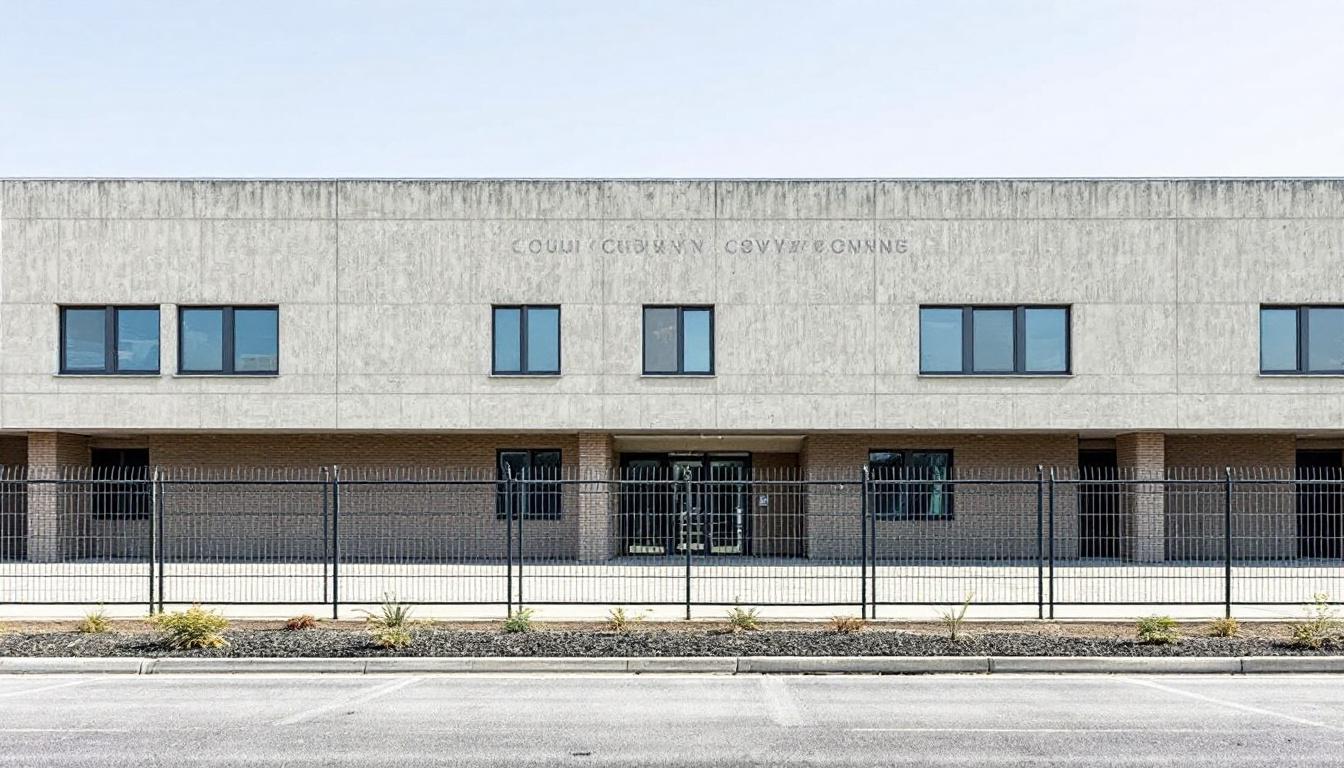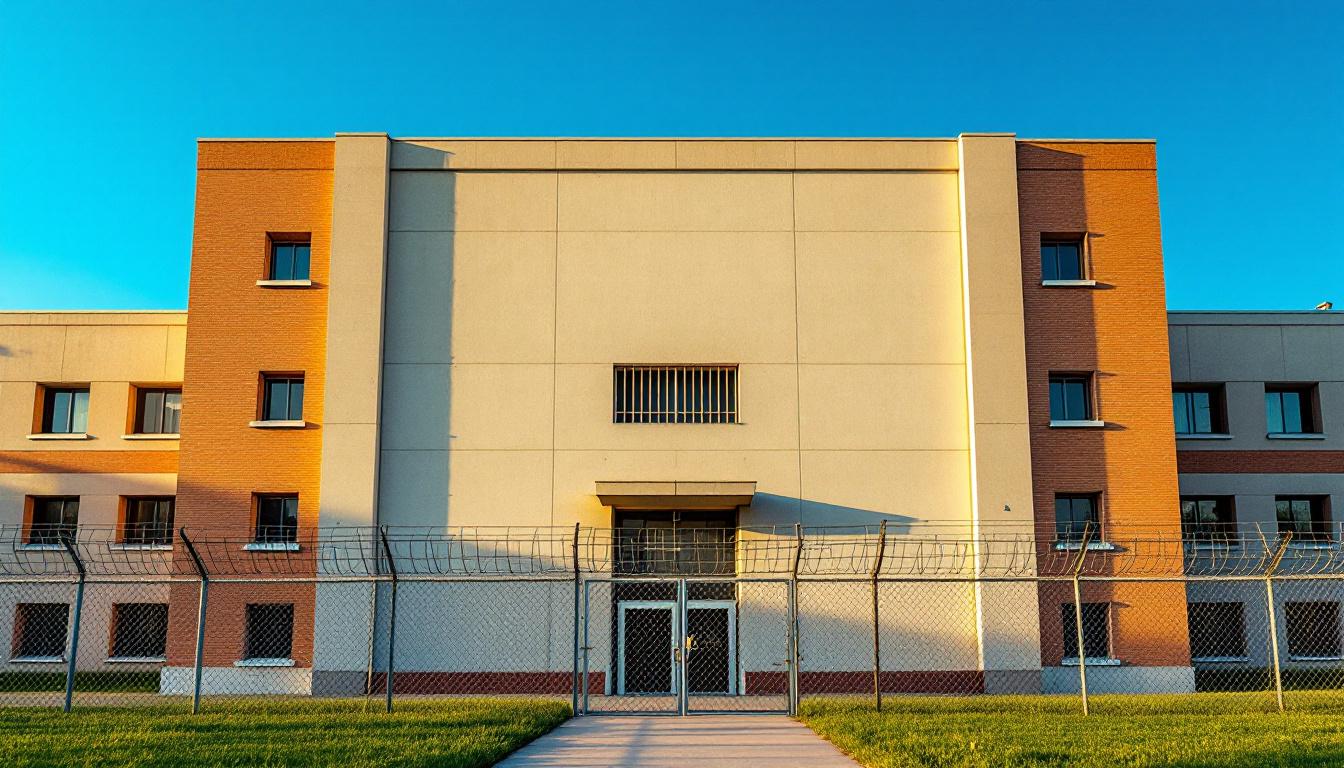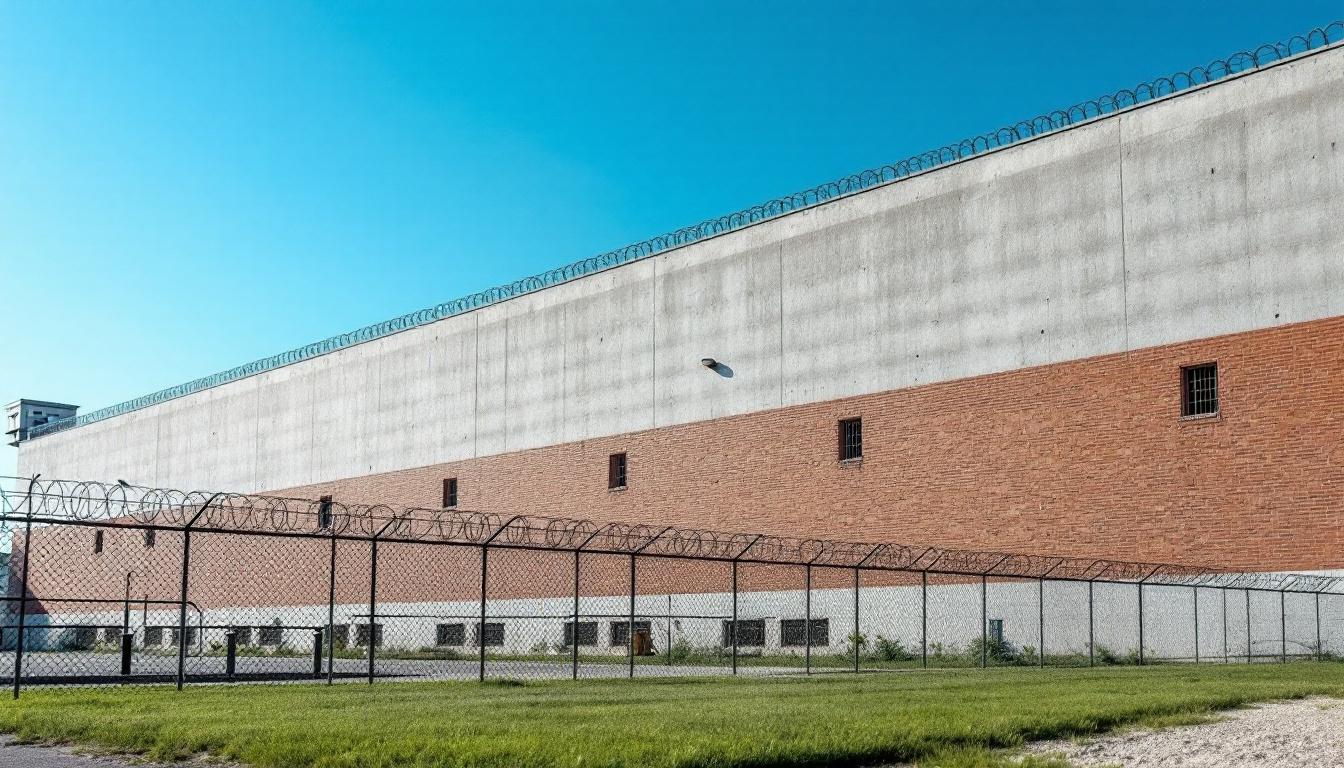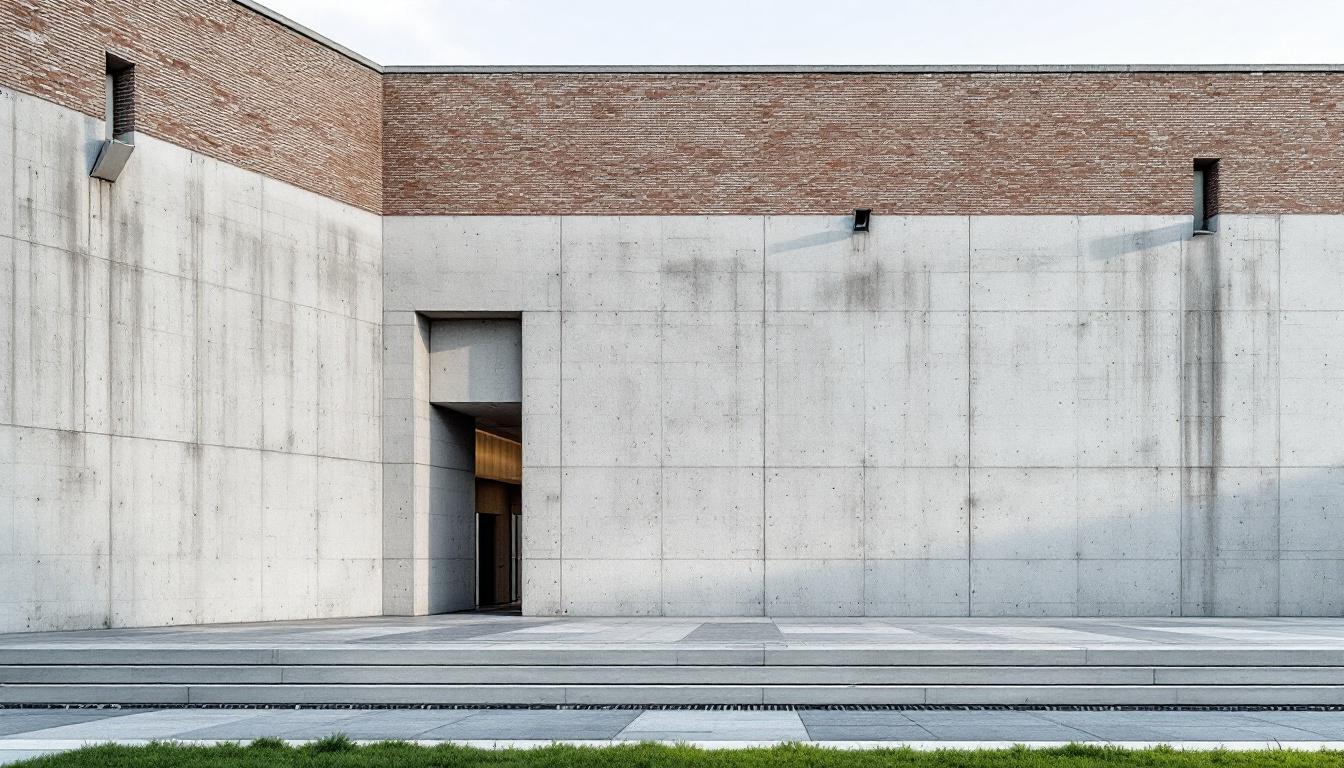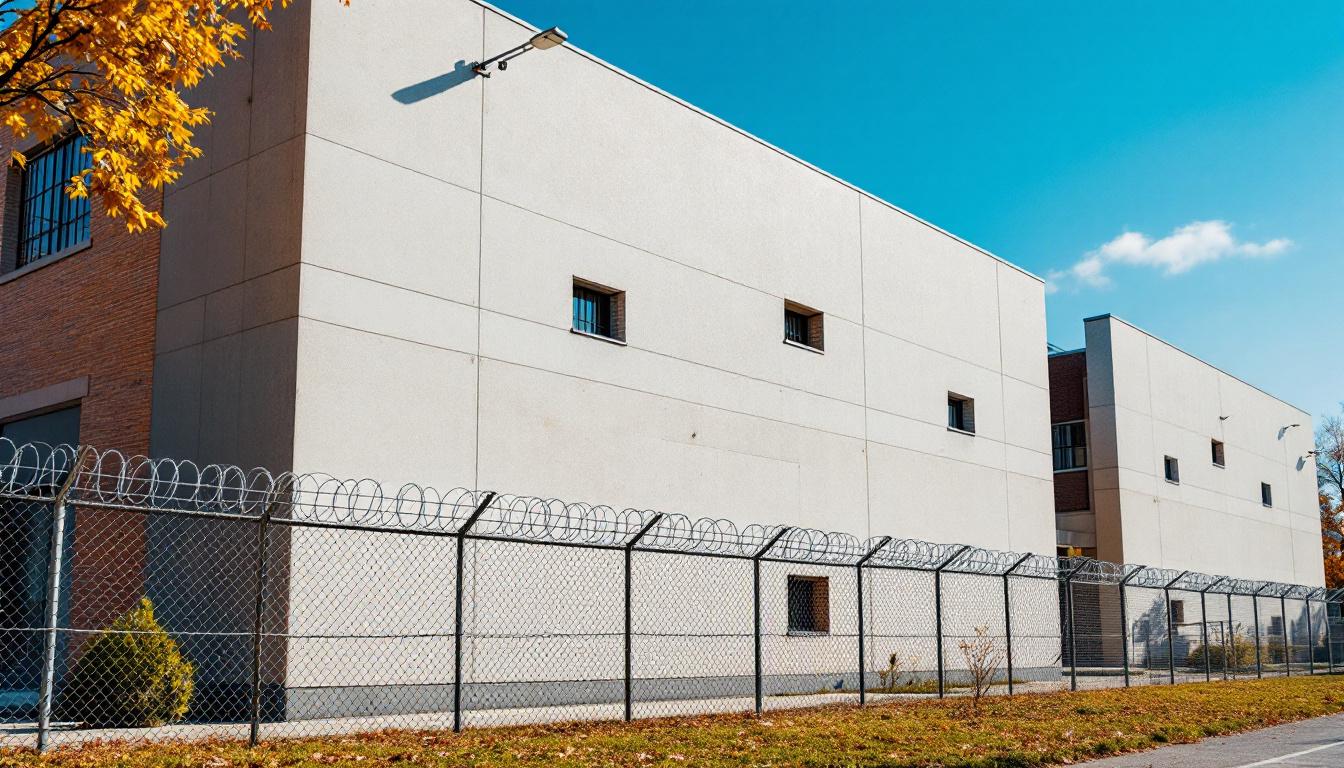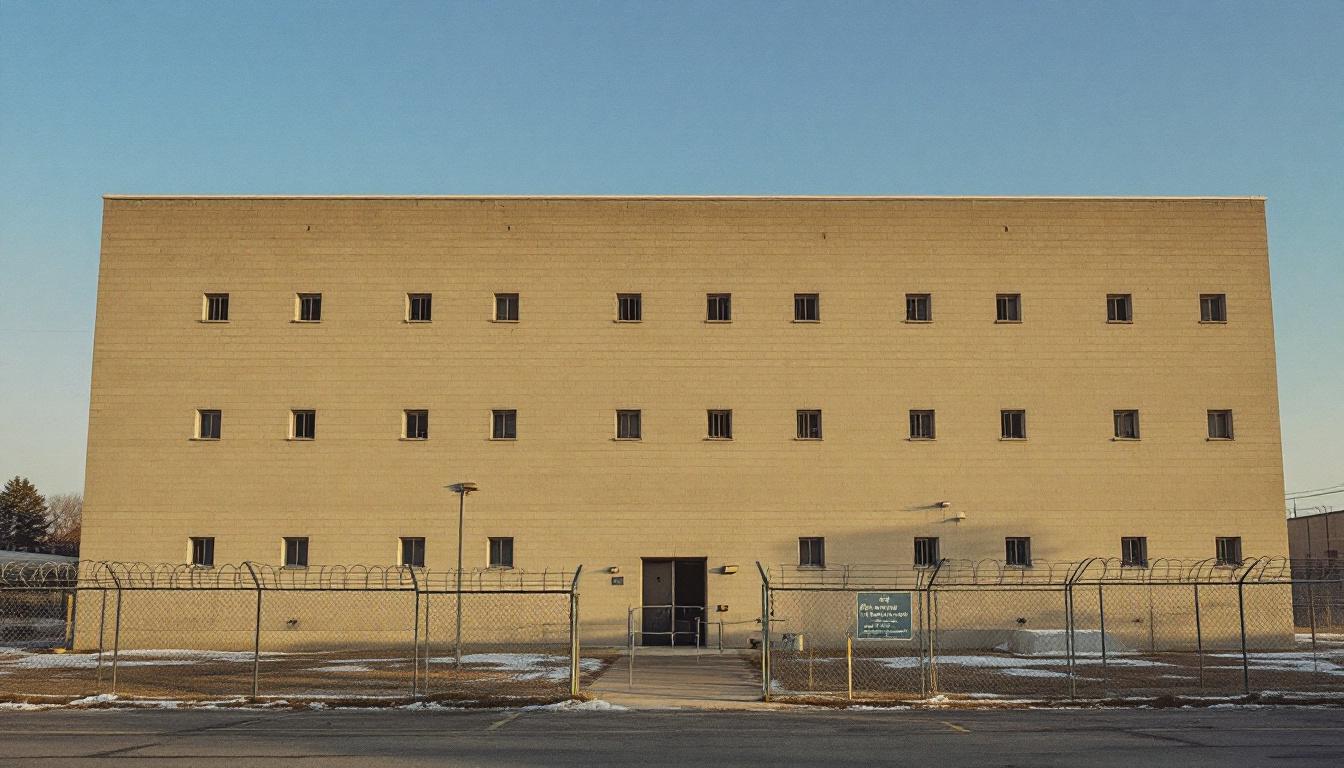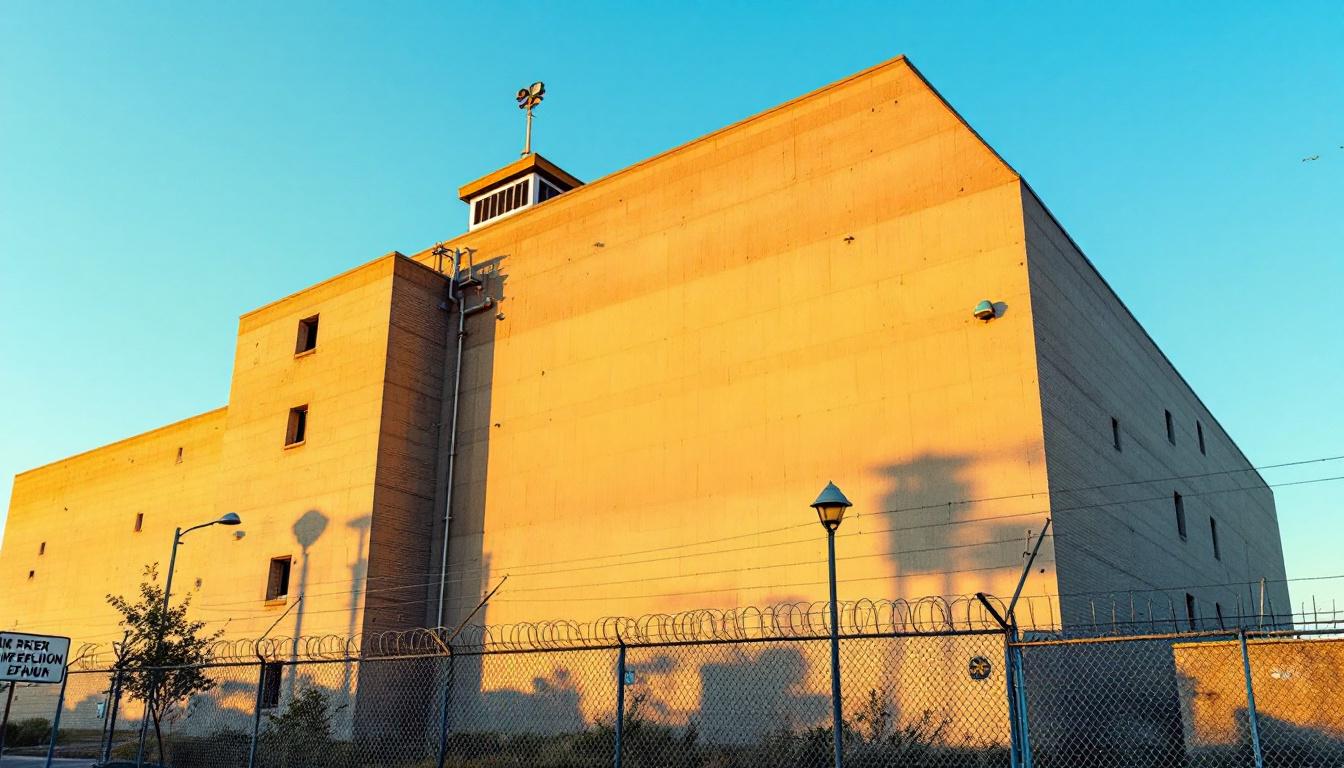
Quick Navigation
How to contact an inmate at Gallia County Sheriff's Office
This comprehensive guide will walk you through how to connect with an inmate at Gallia County Sheriff's Office. Follow the steps below to find an inmate and send letters and photos:
- Search for the inmate using our search tool below
- Create your account or log in to Penmate
- Write your message (up to 6,000 characters)
- Send instantly - inmates receive printed copies daily
Find an Inmate
Search for an inmate to start communicating today
Tip: You can search by first name, last name, or inmate ID number
To contact a person at Gallia County Sheriff's Office start by searching for the person on the official facility website. Perform a search by following these steps:
- Step 1: Enter their first name and last name into the search form and click "Search"
- Step 2: Locate their inmate record
- Step 3: Write down their Inmate ID and any housing information provided
Important! Be sure to enter the person's full name. Nicknames should not be used.
How to Send Messages to Inmates

You can use your phone or computer to send emails, letters, and photos to an inmate. Messages are sent electronically to inmate tablets or kiosks at the facility. If you would like to send a message, start by searching for an inmate at Gallia County Sheriff's Office.
Sending Photos and Postcards

A great way to send love and support to a loved one at Gallia County Sheriff's Office is to send photos and postcards. It only takes a few minutes to send photos from your phone and it makes a huge difference. You can also mail postcards with words of support and inspiration, or design your own postcard for special moments like birthdays and holidays.
Important! Be sure not to send any explicit photos or they may not be approved by the facility. You can also use a photo printing app like Penmate to make sure your photos are printed at the correct size (4x6 or 3x5) and are mailed according to the rules and regulations of Gallia County Sheriff's Office.
Frequently asked questions about Gallia County Sheriff's Office
-
How long does it take to deliver a message?
If you're sending an email message your letter is usually delivered within 24-48 hours. For messages sent via mail you should expect delivery within 3-7 days. All messages will need be approved by Gallia County Sheriff's Office.
-
How much does it cost to send a message to Gallia County Sheriff's Office?
You can send a message free using your phone or mail a message via USPS for the price of a $0.60 stamp and envelope. You can also purchase credits or e-stamps from services starting at $1.99.
-
What services can I use to contact an inmate at Gallia County Sheriff's Office?
Penmate
You can use Penmate to send letters and photos to an inmate from your phone. It's an easy way to stay in touch during your loved one's incarceration. Use the inmate locator to find an inmate's location and contact information, then you can send messages within a few minutes.
Securus messaging
Securus may be another option for communicating with an inmate at Gallia County Sheriff's Office. You can create a friends and family account and purchase credits to send messages. All messages will be reviewed and must be approved by the facility.
JPay
Some county jails and state prisons may support sending messages with JPay. You must register an account with the system, find your loved one, and purchase stamps to send messages. For some locations you can also attach photos.
Smart Jail Mail
You may also check if Smart Jail Mail is available at Gallia County Sheriff's Office. Smart Jail Mail is operated by Smart Communications and has contracted with some state and county jails. After purchasing credits, your messages and photos are sent to the facility, printed out, and then handed out to your loved one.
-
What is the mailing address of Gallia County Sheriff's Office?
Mailing address:
Gallia County Sheriff's Office
18 Locust St
Gallipolis, OH 45631
Phone: (740) 446-1221Business hours:
- Monday: Open 24 hours
- Tuesday: Open 24 hours
- Wednesday: Open 24 hours
- Thursday: Open 24 hours
- Friday: Open 24 hours
- Saturday: Open 24 hours
- Sunday: Open 24 hours
-
What are the visiting hours at Gallia County Sheriff's Office?
Visiting hours at Gallia County Sheriff's Office vary by housing unit and security level. Generally, visits are scheduled on weekends and holidays, with some facilities offering weekday visits. Contact the facility directly at (740) 446-1221 or check their website for the current visiting schedule. Visits typically last 30-60 minutes and must be scheduled in advance.
-
What items are prohibited when sending mail to Gallia County Sheriff's Office?
Prohibited items typically include: cash, personal checks, stamps, stickers, glitter, glue, tape, staples, paperclips, polaroid photos, musical or blank greeting cards, hardcover books, magazines with staples, and any items containing metal or electronics. Only send letters on plain white paper with blue or black ink. Photos must be printed on regular photo paper (no Polaroids). Always check with Gallia County Sheriff's Office for their specific mail policies.
-
How do I send money to an inmate at Gallia County Sheriff's Office?
You can send money to an inmate at Gallia County Sheriff's Office through several methods: 1) Online using JPay, Access Corrections, or the facility's approved vendor, 2) Money orders mailed directly to the facility with the inmate's name and ID number, 3) Kiosks located in the facility lobby, or 4) Over the phone using a credit or debit card. Fees vary by method, typically ranging from $2.95 to $11.95 per transaction.
-
Can I schedule a video visit with an inmate at Gallia County Sheriff's Office?
Many facilities now offer video visitation as an alternative to in-person visits. At Gallia County Sheriff's Office, video visits may be available through services like Penmate, Securus Video Connect, GTL, or ICSolutions. Video visits typically cost $10-20 for 20-30 minutes and must be scheduled in advance. You'll need a computer or smartphone with a camera and reliable internet connection. Contact the facility for their specific video visitation policies and approved vendors.
-
What identification do I need to visit an inmate at Gallia County Sheriff's Office?
All visitors must present valid government-issued photo identification such as a driver's license, state ID, passport, or military ID. Minors must be accompanied by a parent or legal guardian who can provide the minor's birth certificate. Some facilities require visitors to be on the inmate's approved visitation list, which may require a background check. Contact Gallia County Sheriff's Office for specific ID requirements and visitor approval procedures.
-
How can I find out an inmate's release date?
To find an inmate's release date at Gallia County Sheriff's Office, you can: 1) Use the online inmate search tool if available, 2) Call the facility's records department, 3) Contact the inmate's case manager or counselor, or 4) Have the inmate provide this information during a call or visit. For privacy reasons, some facilities only release this information to immediate family members.
Facility Overview
Contact Information
Gallia County Sheriff's Office18 Locust St
Gallipolis, OH 45631
Phone: (740) 446-1221
Official Website

About Gallia County Sheriff's Office
Nestled along the Ohio River in the historic town of Gallipolis, the Gallia County Jail, OH serves as a cornerstone facility within Ohio's broader correctional framework. This county-level institution typically operates under the jurisdiction of the Gallia County Sheriff's Office, functioning as both a pre-trial detention center for individuals awaiting court proceedings and a sentencing facility for those serving shorter-term commitments. The facility's position within southeastern Ohio's correctional landscape reflects the region's approach to balancing public safety with rehabilitation efforts, often incorporating programs designed to address the underlying factors that contribute to criminal behavior.
As an OH correctional facility, Gallia County Jail generally maintains connections with various state and local agencies to provide residents services that may include educational opportunities, substance abuse counseling, and vocational training programs. The facility typically works within Ohio's established correctional standards, which often emphasize preparing individuals for successful reintegration into their communities. Programs commonly found in similar county jail environments may include GED preparation, life skills workshops, and mental health support services, though specific offerings can vary based on available resources and community partnerships.
The jail's role extends beyond simple detention, as it often serves as a critical component in the local criminal justice system's rehabilitation efforts. Located in Gallipolis, the facility typically coordinates with regional courts, probation services, and community organizations to provide a comprehensive approach to corrections that addresses both immediate public safety concerns and long-term recidivism reduction goals throughout Gallia County and the surrounding southeastern Ohio region.
Programs & Services
Comprehensive rehabilitation initiatives at Gallia County Jail emphasize a multifaceted approach that addresses the diverse needs of residents through evidence-based programming. The facility's philosophy centers on providing structured opportunities for personal growth, skill development, and behavioral modification that prepare individuals for successful community reintegration. These initiatives typically operate through a coordinated framework that recognizes the interconnected nature of education, employment readiness, and therapeutic intervention in reducing recidivism rates.
Educational initiatives may deliver foundational literacy programs alongside GED preparation courses, enabling residents to achieve academic milestones that enhance their post-release prospects. Vocational training components often include hands-on instruction in trades and technical skills that align with regional employment opportunities, providing residents with marketable competencies upon their return to the community. Moreover, these educational and vocational initiatives frequently incorporate life skills workshops that address practical challenges such as financial literacy, job interview preparation, and workplace communication, creating a comprehensive foundation for sustainable employment.
Support services and therapeutic initiatives typically encompass specialized programming designed to address underlying behavioral patterns and substance-related challenges. Recovery services may deliver group counseling sessions, individual therapy, and peer support networks that help residents develop coping strategies and maintain sobriety. The facility often includes targeted therapeutic interventions such as sex offender treatment programs that utilize cognitive-behavioral approaches to address harmful thought patterns and behaviors. Moreover, domestic violence programs and victim awareness initiatives frequently provide residents with opportunities to understand the impact of their actions while developing empathy and accountability, contributing to meaningful behavioral transformation that benefits both individuals and the broader community.
Daily Life & Visitation
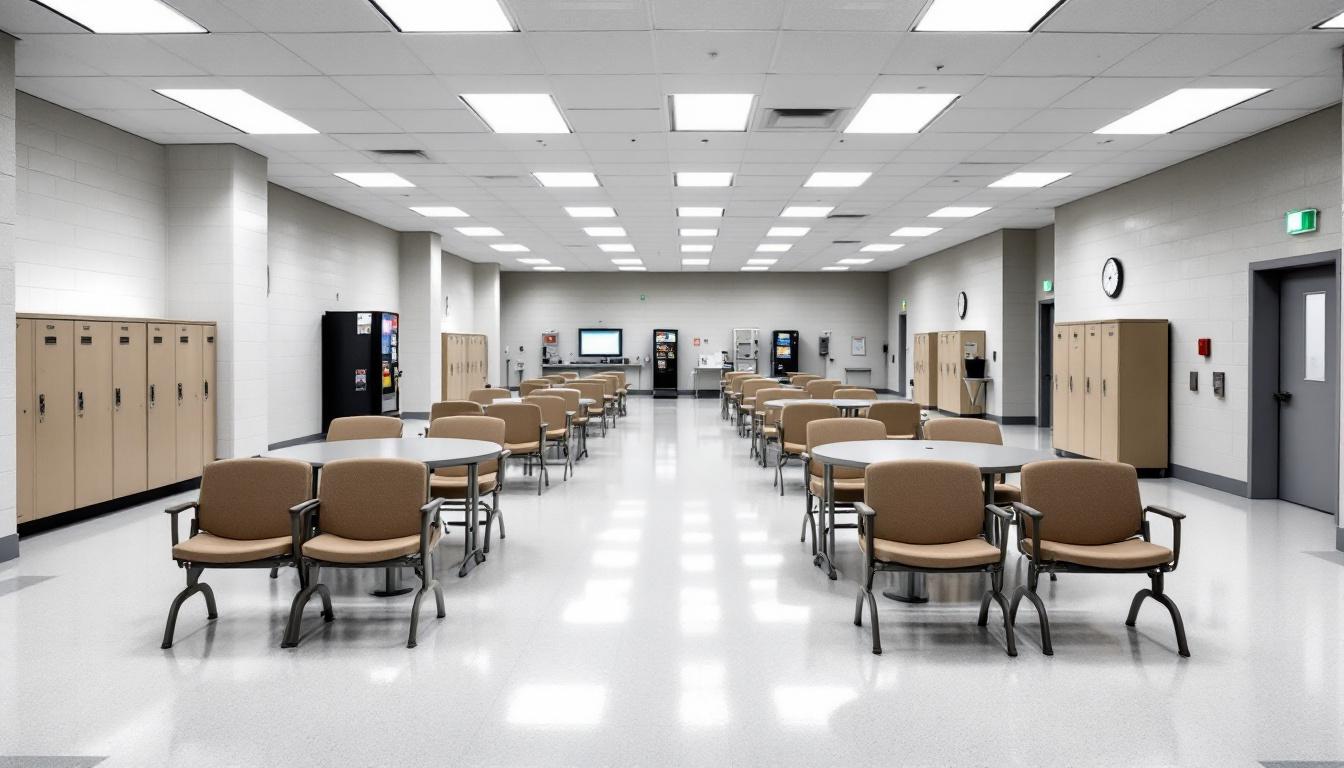
The steady rhythm of count times, meal services, and scheduled programming now anchors each day within the facility's walls, creating a predictable framework that residents regularly depend upon for structure and stability. Morning routines typically begin early with security counts and breakfast service, followed by work assignments or educational programming that may include basic literacy classes, substance abuse counseling, or vocational training opportunities. Throughout the day, residents generally participate in scheduled activities that deliver consistent structure, from recreational periods in common areas to supervised outdoor exercise time when weather permits.
Housing arrangements at the Gallia County Jail typically consist of dormitory-style units or smaller cells, depending on classification levels and available space. Residents usually share living quarters with others, creating a community environment where daily interactions occur during meals served in designated dining areas and during supervised recreation periods. Personal property allowances generally include basic hygiene items and limited personal belongings, while commissary services may offer additional food items and necessities that residents can purchase with funds from approved sources.
Moreover, the facility typically maintains structured communication policies that allow residents to connect with family members through scheduled phone calls and regular visitation opportunities. Work assignments often include kitchen duties, facility maintenance, or laundry services, providing residents with productive activities that contribute to the facility's daily operations. Whereas evenings generally involve quieter activities such as reading, watching approved television programming, or participating in support group meetings, the consistent daily schedule helps residents maintain a sense of routine that can support their overall well-being during their time at the facility.
Ready to Connect?
Start communicating with your loved one today
Search for an Inmate
